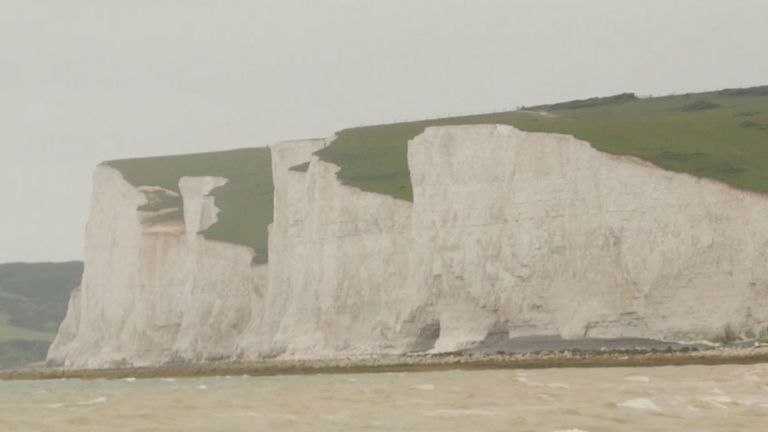[ad_1]
Two thirds of corporate climate targets have been branded “alarmingly weak,” risking charges of “greenwashing”, according to a major global review of net zero promises by companies and corporations.
New analysis of more than 4,000 pledges by countries and companies around the world hails the recent “surge” of such targets, but criticises “major flaws” in their credibility, particularly in those from the fossil fuel industry.
Report co-author Dr Takeshi Kuramochi, from the NewClimate Institute, warned the “peer pressure” to set net zero pledges in the business world could trigger “either a mass flow of greenwashing – or a fundamental shift towards decarbonisation”.
Reaching net zero – eliminating net emissions by cutting most and offsetting the rest – by 2050 is regarded as essential in order to limit warming to 1.5C and stave off climate breakdown.
For what is thought to be the broadest global analysis of net zero targets by volume, a team of volunteers at Net Zero Tracker analysed those from all countries, major cities and regions and the world’s largest 2,000 companies listed by Forbes Global.
They applauded the “unprecedented scale and scope” of net zero targets, which now cover 91% of global GDP and 65% of greenhouse gas emissions, around six times more than just two to three years ago.
But they warned that in contrast to country-level net zero targets, the volume and robustness of those set by non-state actors was “alarmingly weak”.
While over a third (702) of the world’s 2,000 largest publicly traded companies have set net zero targets, 65% (456) of those targets miss minimum standards, and 40% intended to rely on carbon offsets.
The run up to COP26 in Glasgow saw a flurry of net zero promises from companies and authorities, and during the climate talks Chancellor Rishi Sunak declared plans to “rewire the entire global financial system for net zero”.
A spokesperson for the UK government, which hosted the talks, said the “innovation, influence and energy of the private sector will be absolutely critical in… turning the promises made at COP26 into tangible action”.
“This is not about committing to a vague aspiration at a distant point in the future, but to clear, science-based transition plans and taking action now,” they added.
Risk of a fig leaf
Dr Steve Smith, executive director of Oxford Net Zero, which helped build the tracker, said it is “not surprising not all of the pledges are backed up yet”, because while some entities work on a detailed plan and then announce their target, others announce the goal first and work backwards.
“But there is a risk that entities use a net zero pledge as a fig leaf to excuse the fact they are not taking urgent action now,” he told Sky News.
“Greenwashing” implies an entity is marketing misinformation about its climate credentials so as to present an environmentally responsible public image.
To avoid being accused of greenwashing, and ensuring they can keep their promises, companies should detail a plan, take action straight away, and be transparent about their reliance on offsets, Dr Smith added.
Contentious carbon offsetting
Carbon offsets are integral to reaching net zero, particularly for carbon-intensive sectors like heavy industry. But their use must be limited due to funding, land and technology constraints, and their integrity remains contentious because it’s hard to prove their permanence.
The report authors name-checked the fossil fuel industry for setting a high number of net zero targets, but say academic research suggests “these targets are often only symbolic in nature – at worst, flat-out greenwashing – rather than signs of genuine corporate climate leadership”.
An oil and gas industry spokesperson was not immediately available to comment.
“Yet even if the bulk of these targets are not being set in good faith… as scrutiny by civil society, researchers, and policy makers grows ever louder – gone are the days when misleading net zero targets remain unchallenged,” the report said.
Watch the Daily Climate Show at 3.30pm Monday to Friday on Sky News, the Sky News website and app, on YouTube and Twitter.
The show investigates how global warming is changing our landscape and highlights solutions to the crisis.
[ad_2]


